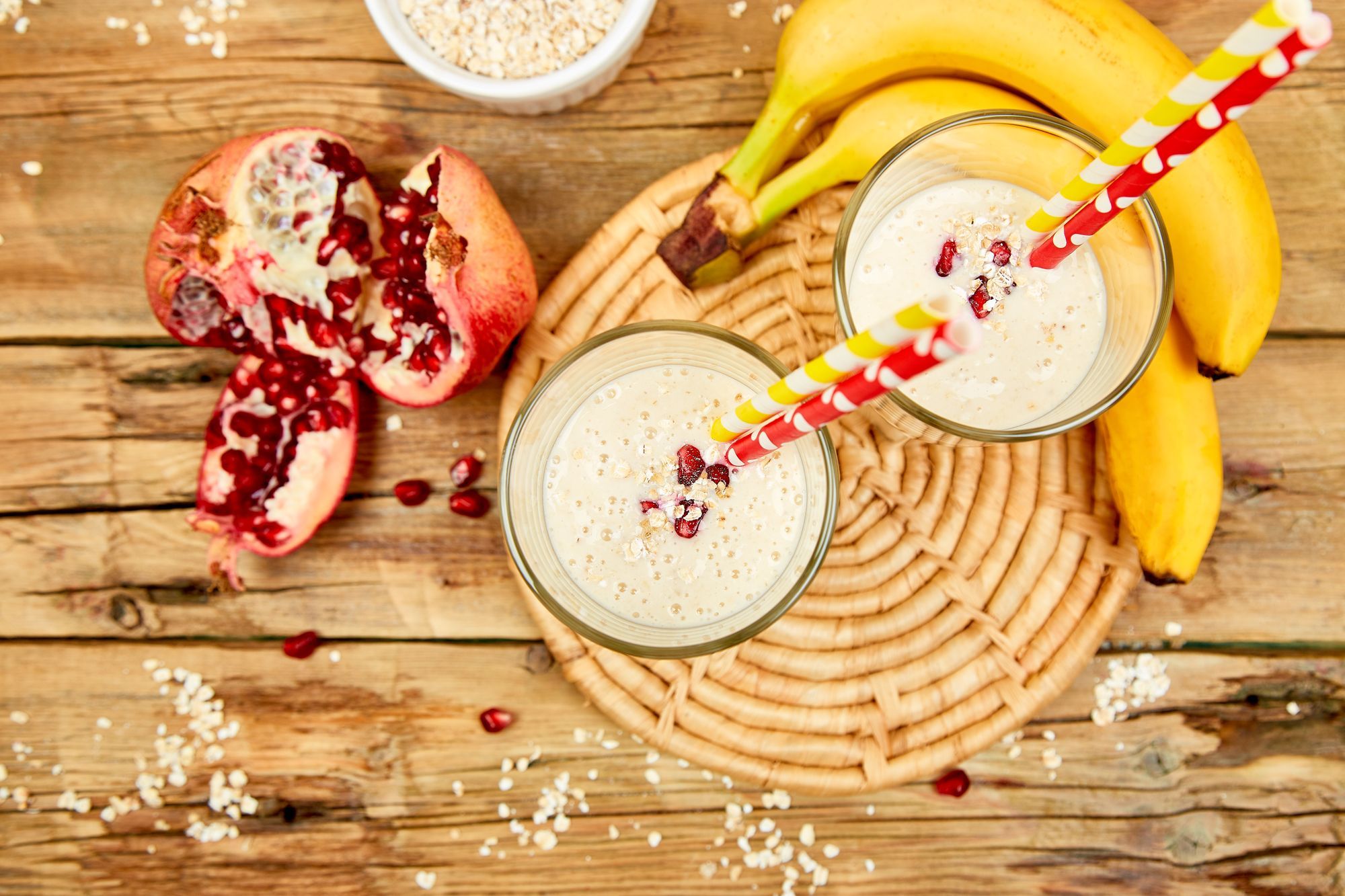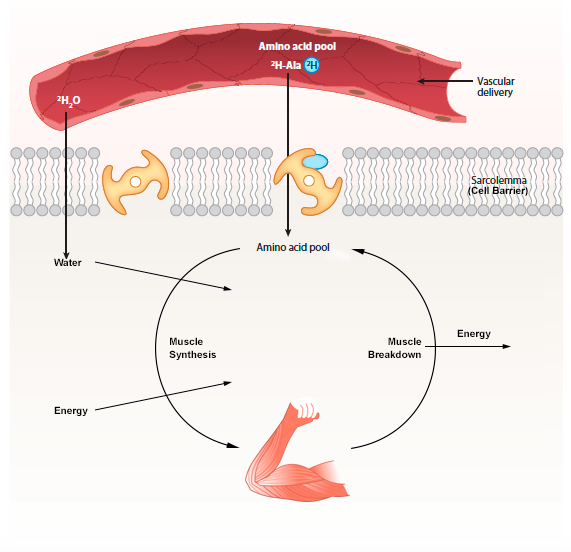How Many Protein Shakes Is It safe to drink?
The chances are that dietary protein is bound to come up in conversations every few minutes or so. And if you're a lifter yourself, you undoubtedly understand why. Protein is – undoubtedly – the most critical macronutrient when it comes to making improvements to your physique.

Keep an ear out in the gym?
the chances are that dietary protein is bound to come up in conversations every few minutes or so. And if you're a lifter yourself, you undoubtedly understand why. Protein is – undoubtedly – the most critical macronutrient when it comes to making improvements to your physique.
But just because you understand the significance of it, doesn't always translate into knowledge of knowing exactly how much protein you need daily. It certainly doesn't mean that you'd know just how many times you need to reach out for the shaker bottle either.
Lucky for you, this article is going to bust some common protein myths and provide you with everything you need to know about protein consumption.
Common protein myths
Sometimes, advice has been repeated and passed around for such a long time that it sounds correct. Except that it's not. Get as far away as you can from anyone who tells you the following:
Myth 1: You need to eat protein every 3 hours
No. You don't need to consume protein every few hours. Research has dispelled this myth: there's evidence that shows eating six or more meals a day doesn't lead to demonstrably superior muscle-building effects. What matters is overall, daily protein intake.
Myth 2: Your body can only absorb 20 grams of protein per meal
Your body does have a limit on absorption, but it's on leucine – an amino acid. As it turns out, your body can only absorb 1.8 grams of it per meal. For example, 113 grams of lean beef total up to 1.8 grams of leucine and 30 grams of protein.
Ultimately, the amount of protein you should eat depends on how much it takes to get to 1.8 grams of leucine, not how much actual protein you consume.

Myth 3: You need to get your protein immediately post-workout
Do you still believe that you need to make a beeline for your locker for that protein shake immediately after your last bicep curl? Well, you must have missed our previous article on the post-workout anabolic window then.
In short, the post-workout anabolic window is pretty big. You have enough time to chill out in the shower room, take the bus back home, catch an episode of Stranger Things, and still have time to spare for the anabolic window.
It doesn't matter if you consume your protein immediately post-workout or stretch it to within a couple of hours. You'll find that the anabolic response will be roughly the same. Call it an 'anabolic day,' rather than an 'anabolic window,' if you will.
So – how many protein shakes?
Excellent. Now that we've busted the common protein myths floating around in the fitness industry, it's time to cover the crucial bit. How many protein shakes should you consume daily? Well, the answer is both straight-forward and not – at the same time. You'll see what I mean in a while.
Here are the steps you need to follow to calculate the number of protein shakes you need.
#1 – Calculate daily protein intake
The first step to determining how many protein shakes you need is to calculate your daily required protein intake. If you've read our article that covers the secrets on getting lean, you'd know that you should – roughly – hit 1.6 grams to 2.0 grams of protein per kilogram of body weight.
Let's say you weigh a respectable 60 KG. Based on the maximum recommendation of 2.0g/KG of body weight, you'd then need 120 grams of protein daily.
Any consumption beyond that amount is excessive and isn't likely to enhance further muscle repair or growth. And besides, magical as it is, protein is still calories. You will put on weight if you consume more calories than you burn.
#2 – Track everything you put in your mouth
Do you know how much protein is in that delicious grilled chicken breast you ate for lunch? No? Then – how would you know if you're hitting your daily, required protein intake? Hopefully, you now see the need to track your food intake.
Yes, every single food item that goes into your mouth. Get those beef jerky cubes you consider as 'light snacks' in, they count. Not to forget that tiny cup of Greek yogurt – that counts, too.
Track your food intake for a minimum of 2 weeks, so you establish a baseline dietary pattern. You should be able to gauge your rough daily protein intake by the end of the period.
#3 – Get the remaining from protein shakes
"Damn it, tell me already. How many protein shakes do I need?" If that sounds like you, hey – the answer is right here. But it depends on three scenarios. Take a good look at your daily required protein intake and your actual protein intake.
If your actual protein intake is:
· More than your required protein intake – What are you doing? You're eating way too much protein! Cut down on your dietary protein; you're wasting precious calories.
· Same as your required protein intake – You lucky one; it's not easy getting all your protein from real foods, but you did it! You don't need protein shakes, continue doing what you're doing.
· Lesser than your required protein intake – So, you need protein shakes. How much? Well, it's all a matter of math from here. Let's say you still need 20 grams of protein; that can easily be solved with a serving of typical protein powder. Need 40 grams? Two scoops, then. Or 2 separate shakes. Whichever you prefer, keep a lookout for total leucine content.
Bottom line
Ultimately, protein shakes are what they are: diet supplementation. There's no reason to chug them if you're already hitting your daily required protein needs from regular foods in your diet. And also, it goes without saying that there's no use optimizing your protein intake if you're not putting in effort in the gym.
Your muscles will not grow bigger and stronger if you subject them to stress and micro-tears through consistent resistance training. Keep yourself accountable to your workout routine by downloading GymStreak today. The smart, AI-powered app sends you reminders of upcoming workout sessions, so you don't forget! You can also log all your workouts within the app – perfect for tracking your progress. You have no more excuses!
References
Atherton, P. J., & Smith, K. (2012). Muscle protein synthesis in response to nutrition and exercise. The Journal of Physiology, 590(Pt 5), 1049–1057. https://doi.org/10.1113/jphysiol.2011.225003
Reidy, P. T., & Rasmussen, B. B. (2016). Role of Ingested Amino Acids and Protein in the Promotion of Resistance Exercise-Induced Muscle Protein Anabolism. The Journal of Nutrition, 146(2), 155–183. https://doi.org/10.3945/jn.114.203208
